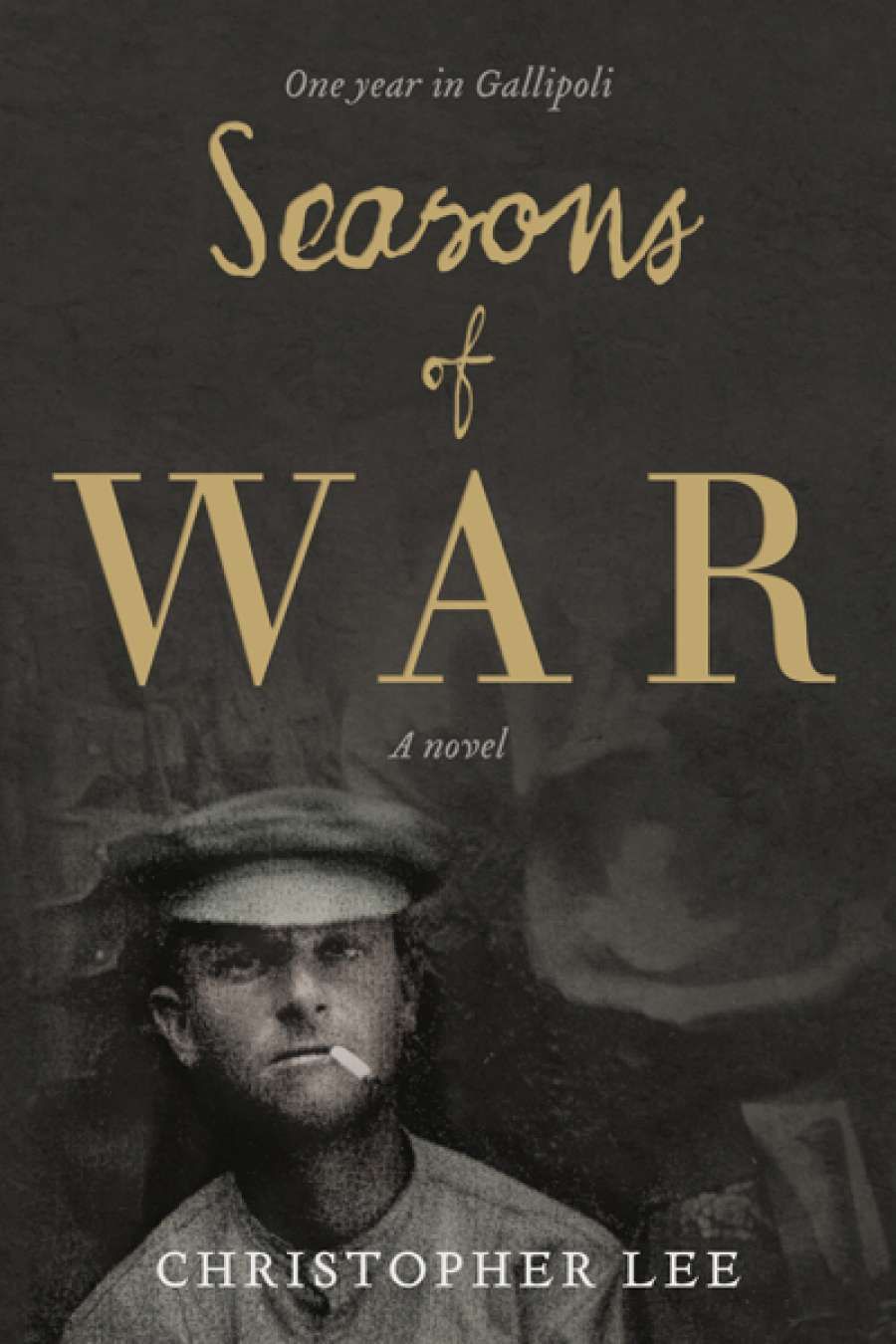
- Free Article: No
- Contents Category: Fiction
- Custom Article Title: James Dunk reviews 'Seasons of War' by Christopher Lee
- Book 1 Title: Seasons of War: A Novel
- Book 1 Biblio: Viking, $24.99 hb, 144 pp, 9780670078837
That Christopher Lee writes chiefly for the screen may account for the strange time signature of his prose, which skips between present and past, and sometimes stumbles into the future. Done vividly in image and sound, this might work; on the page it distorts our connection with the young soldier-narrator, Michael. But in the description of trench feet, bleak weather, and war exhaustion there are fewer seams, and Lee does take us to somewhere that could be Gallipoli, 1915.
The spell is broken, abruptly, when Michael says this: Australia ‘came out of Gallipoli and decided we are different now’. It is perplexing. The only hint of national sensibility to this point in the novel was the relentless lambasting of the British – caricatures of generals who appear to be the Anzacs’ only enemies on the peninsula. The Turks, by comparison, are victims, eager to exchange cigarettes and other small mercies with the Allies.
Michael, almost dead, asks plaintively, ‘Who speaks for the soldiers?’ Why, historians, like Alistair Thomson, whose Anzac Memories: Living With the Legend (1994, 2013) quotes those soldiers who, coming home, were further traumatised when their experiences were written into a mythology of national birth. Or soldiers. Archie Barwick’s edited war diary, In Great Spirits (2013), reads with the quiet poetry of someone who was there. It was, after all, the twentieth century. Soldiers could write for themselves; they can write, and have written, for the dead.


Comments powered by CComment